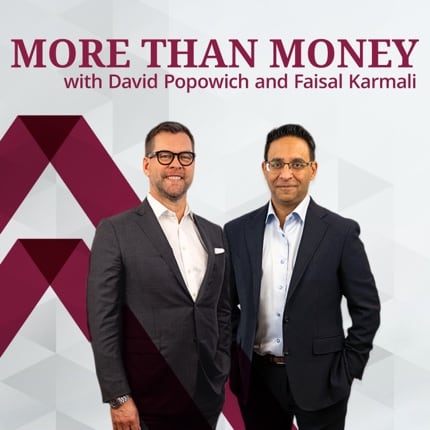How do you know if the transfer of money or assets is a gift or a loan?
When it comes to moving money within your family, lines can get blurred.
In a recent Ontario court case, a father claimed that the $10 million in cash and real estate he had transferred to his adult son was a loan while the son said it was a gift.
The law suggests that property transferred to an adult child is presumed to be held in trust; however, the child can overturn that presumption by providing evidence that the parent intended it as a gift.
We asked recurring guest Katharine Zhang, Partner with Walsh LLP, to weigh in.
Whether for a downpayment on a home, education, or a little extra help when times are tough, when it comes to money, families do not often put pen to paper. However, a discussion around the kitchen table is difficult to prove in court. No one wants to end up in a legal dispute – least of all with your family members – so here are four suggestions to make your intentions clear and avoid misunderstandings:
- Start with a conversation: Before assets change hands, it’s a good idea to have a frank discussion to give each party a clear understanding of the other’s intentions and perceptions pertaining to the transaction. This conversation may not rule out any possible misunderstandings that may occur over time, but it does ensure both parties start out on the same page regarding the purpose and expectations for the money.
- Document, document, document: Once both parties have a clear understanding of the intention behind the transfer, Zhang recommends taking things one step further and documenting that intention. If the money is intended to be a loan, you can sign a promissory note or a loan agreement, which spells out the terms of the loan. If the money is intended to be a gift, documentation could be as simple as a statement of intent or an acknowledgement of the gift, signed by the giving and receiving parties.
- Get expert advice: While any documentation is better than none, Zhang contends that involving a lawyer can ensure the paperwork is properly drafted and enforceable. If you are worried that involving lawyers will impact family dynamics, just think of the alternative. It is much better to engage a lawyer up front to help prevent conflict between family members than in the event of a lawsuit if something goes wrong.
Depending on your situation, it is also important to get advice from a tax professional. Transferring funds to family members can have significant tax implications, both for the giver and the recipient. An accountant can help you understand the consequences of the transaction and plan accordingly to minimize any potential tax liability.
- Consider things from an estate planning perspective: The complexity of giving or loaning money to family members is only amplified if one party passes away. Do you want to forgive any outstanding loans as of the date of death? Will this cause an imbalance of inheritance between your heirs? It is important to work through these types of questions with your team of professionals. Ensure your executor knows what you want, where to find the supporting documentation, and how to execute on your wishes.
For more information about family loans and gifts and how they factor into estate planning, connect with one of our advisors! Visit PKAG.ca for more information.
This information, including any opinion, is based on various sources believed to be reliable, but its accuracy cannot be guaranteed and is subject to change. CIBC and CIBC World Markets Inc., their affiliates, directors, officers and employees may buy, sell, or hold a position in securities of a company mentioned herein, its affiliates or subsidiaries, and may also perform financial advisory services, investment banking or other services for, or have lending or other credit relationships with the same. CIBC World Markets Inc. and its representatives will receive sales commissions and/or a spread between bid and ask prices if you purchase, sell or hold the securities referred to above. © CIBC World Markets Inc. 2023.
CIBC Private Wealth consists of services provided by CIBC and certain of its subsidiaries, including CIBC Wood Gundy, a division of CIBC World Markets Inc. Insurance services are available through CIBC Wood Gundy Financial Services Inc. In Quebec, insurance services are available through CIBC Wood Gundy Financial Services (Quebec) Inc. The CIBC logo and “CIBC Private Wealth” are trademarks of CIBC, used under license. “Wood Gundy” is a registered trademark of CIBC World Markets Inc.
Clients are advised to seek advice regarding their particular circumstances from their personal tax and legal advisors.
If you are currently a CIBC Wood Gundy client, please contact your Investment Advisor.
David Popowich and Faisal Karmali are Investment Advisors with CIBC Wood Gundy











